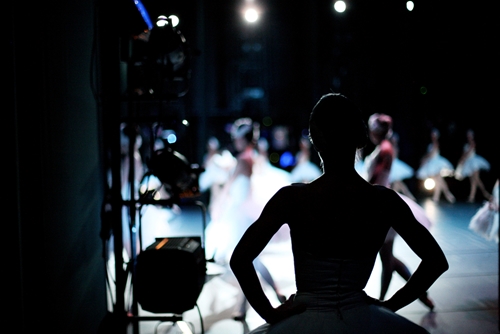As you gear up for competition season, there are probably a lot of things on your mind. Once you’ve gotten costumes and music squared away, it’s also worth your while to double-check that you’re adhering to dance competition rules. This may seem like a menial task, but it can save you a serious headache if you get the details cleared away before the day of the competition.
Here are some important recommendations when it comes to double-checking that your competition team is following all the necessary rules.
Paperwork Details
If you have multiple teams and soloists performing at a competition, sometimes the paperwork can get a little mixed up, especially if you’re rushing through the documents. Once you’ve finished filling out entry forms, The Dance Exec recommended that you go back through all the entries and double-check that student’s names are spelled correctly and their birth dates are accurate. This process will likely take a few extra minutes, but it can save you time trying to correct inaccurate information on the day of the competition.
Category Specifications
It’s also best to take an hour or two before big competitions to ensure your routines adhere to the competition guidelines. You should look into the following items for each group that you’re entering:
- Time limits
- Acrobatic requirements or limits
- Costume guidelines
- Music requirements
- Use of props
- Production guidelines
- Scoring systems.
Double-checking dance competition rules is an especially important step if you’re attending an event that you’ve never entered before. The requirements and limitations can vary significantly between competitions, so be sure to do adequate research. When in doubt, it’s best to contact the organization to clarify your confusions than risk being disqualified for not meeting regulations. However, even if your dancers have participated in the competition for a number of years, it’s still a good idea to make sure there haven’t been any rule changes.
Performance Levels
Another set of dance competition rules that are worth double-checking are the various performance levels. Depending on what event your dancers are attending, there will be different guidelines that regulate whether they’re classified as recreational, intermediate, elite, adult or another category. Some competitions differentiate performance levels based on age, years of competition experience or hours of class per week.
Classification is often left to the teacher or studio owner, so be sure to carefully read through the guidelines on each performance level. If your dancers are competing at the wrong level, they could be subject to point deductions or disqualification. Not to mention that putting dancers in the wrong category will often undermine their competition experience. The purpose of these events should be to help your students grow as performers and test their skills against peers, and your dancers won’t be able to do that if they’re not on a level playing field with other studios.
Unspoken Rules
If you’re new to the competition circuit, you’ll quickly learn that there are some dance competition rules that aren’t always written down. One notable example is the costumes your teams wear – some events may not have specific costume guidelines, but what your dancers wear can still impact their scores.
Dance magazine explained that competition teams should always have age-appropriate and professional costumes. The judges are watching the moment dancers take the stage, and their first impression will be based mostly on what the performers are dressed in. If a group of young dancers are wearing rhinestone bras and short shorts, the adjudicators may immediately have a negative opinion of the group.
“It could be amazing choreography, but I’ve already formulated the thought, ‘I wish those kids were wearing a shirt or some clothes’ before they’ve even danced,” Brandon Cournay, a judge for the Headliners Dance Competition, explained to Dance magazine.
The publication noted that many judges will deduct points or even disqualify for inappropriate wardrobe choices, so you’ll want to put adequate time and consideration in your dancers’ competition costumes.
Prepping parents
Certain competitions have guidelines for spectators, so be sure to check these out and pass them along to any parents who are attending the event. It may not seem like a big deal, but Dance Teacher magazine explained that sometimes judges will dock points off a team’s score if their fans are behaving inappropriately.
“We even take points off for certain routines where parents or teachers – even though they’ve been warned – continually take video,” Brendan Buchanan of BravO! Dance and Talent Competition explained to Dance Teacher magazine.
It may be helpful to have a pre-competition meeting with parents and students and explain what’s expected of them. This is also a good opportunity to go over good sportsmanship practices and ensure everyone is squared away on the details of the big day!


